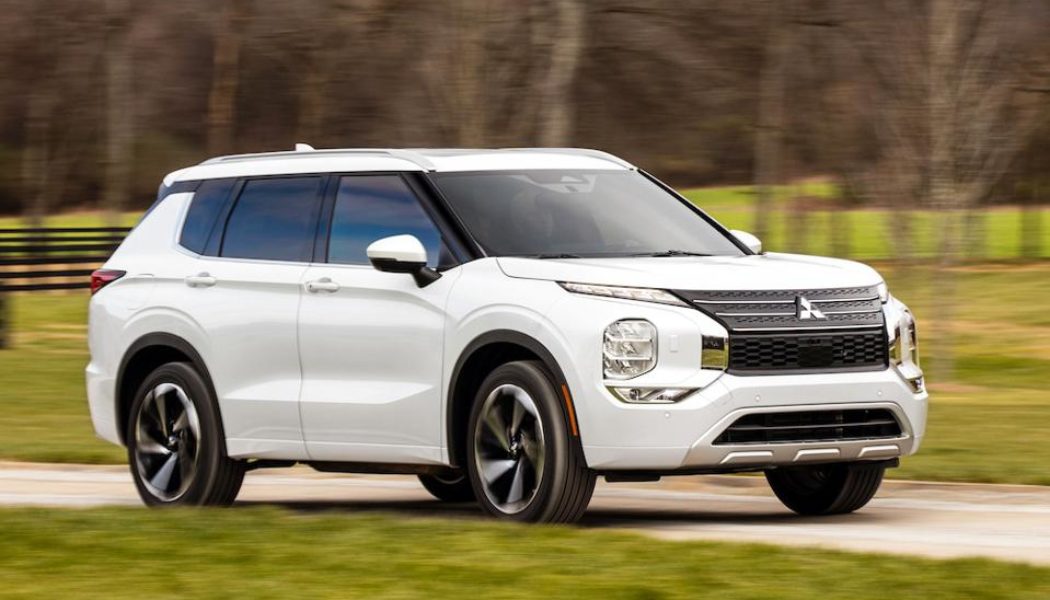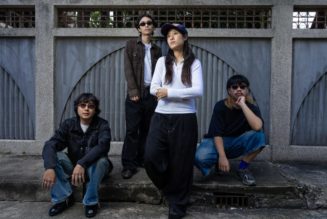MotorTrend spent some time with Mitsubishi global design boss Seiji Watanabe. At the 2017 Tokyo auto show, Mitsubishi showed the e-Evolution concept, a crossover showcasing the company’s future design direction. It is still a vanguard for the new 2022 Outlander, which Watanabe says is the flagship, embodying a more confident design philosophy with a planted stance, sharper hexagonal lines, a raked windshield, and the “dynamic shield” for a grille.
2022 Mitsubishi Outlander Is First of a New Wave
The Outlander is just the “first of the next generation of authentic Mitsubishi [vehicles],” and the “frontrunner of our evolving design strategy,” Watanabe says. He started with the vehicle’s proportions and worked from there to create a bolder Outlander. The SUV’s more premium interior is also a sign of things to come and reflects the company’s desire to elevate Mitsubishi above its status as a value brand.
Still in the pipe is a new version of the Outlander Sport, built on the platform used by the Nissan Kicks, the Nissan Versa, and a new redo of Mitsubishi’s Eclipse Cross compact crossover. Previous plans to introduce the new Outlander Sport next year and add an electric SUV may have been pushed back, but Watanabe says we will see an “updated EV vehicle” next year. He could be referring to the next-generation Outlander PHEV coming to the U.S.; there is a plug-in hybrid version of the Eclipse Cross in Japan, but it is not coming to this market. Mitsubishi’s first pure electric car will be a micro or kei car for Japan. It has said Mitsubishi will expand its electrified lineup to half of its global sales by 2030.
Mitsubishi Is More Than SUVs
Watanabe says Mitsubishi will not be an SUV-only brand—it has a compact pickup truck for other parts of the world and still sells the 78-hp Mirage here, in addition to assorted sizes of SUVs. But don’t expect a return of the Eclipse, Evo, or a next-generation Mirage. And although dealers keep clamoring for a pickup, there are no immediate plans to give Mitsu a truck from the Nissan Frontier platform, built by Nissan in the U.S., which is the only way it would be feasible. (Watanabe wouldn’t close the book entirely on a pickup, saying Mitsubishi is still studying the possibility.) The Dodge Dakota-based Raider was the last pickup Mitsubishi offered in the U.S., but the company discontinued it in 2009.
The designer would not say if he is penning an SUV to revive the Montero name; his response to our inquiry: “You can imagine.” Executives in the past said the Montero will return, but today the prospects look bleak. Montero sales ceased in North America after the 2006 model year, and the global Pajero/Montero is being discontinued this year as part of downsizing thanks to the pandemic’s effects on overall sales.
Design Culture in the Nissan-Renault-Mitsubishi Alliance
Asked how design works within the Alliance, Watanabe says he talks with Nissan design chief Alfonso Albaisa, as well as the head of Renault design, about future products to ensure each brand keeps its unique image and strengths in terms of looks, technology, and performance. Information is only shared at the design-head level, he says, “to avoid a similar direction.” The Alliance wants commonality and sharing to reduce costs while ensuring each brand remains distinct. The 2022 Mitsubishi Outlander has different window angles, silhouette, body sides, and cabin from the Rogue. It is also wider and has changed the placement of its larger 20-inch wheels. Engineers tuned the suspension differently, as well. But as much the Outlander has taken a step in the right direction, Mitsubishi still has a big job ahead to prove it can deliver a compelling portfolio at whatever price point its next new products aim to slot into.










